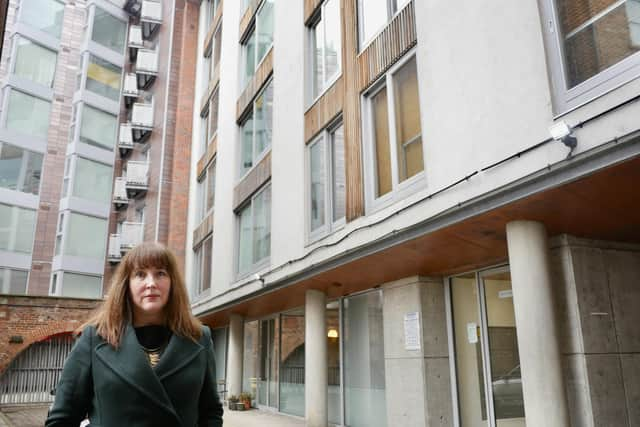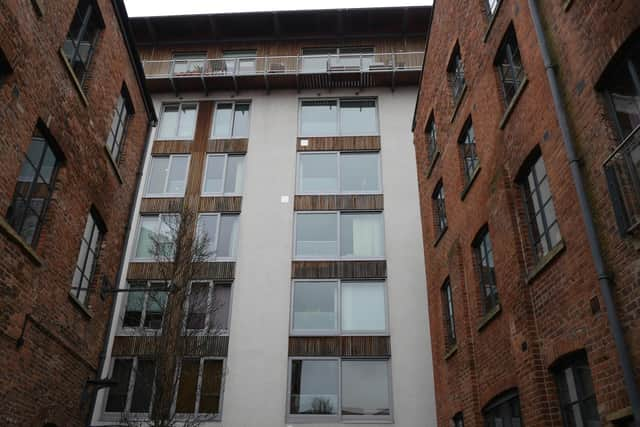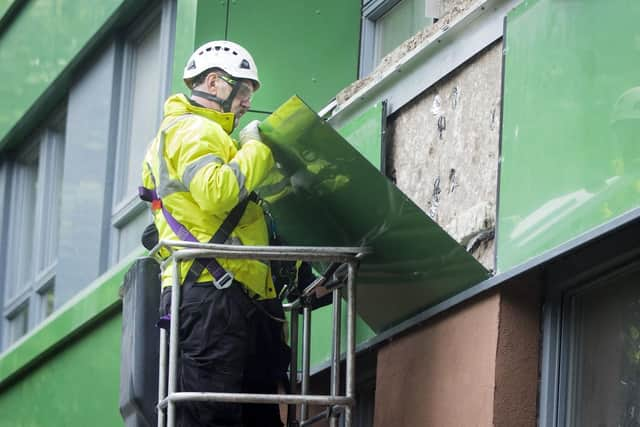Michael Gove makes a difference but misery continues for many caught in the building safety scandal
Uncovered after 72 people lost their lives in the Grenfell fire just over five-and-a-half years ago, it has blighted up to 1.5 million flats with many effectively unsaleable and others only sellable at a huge loss.
Meanwhile, leaseholders have been forced by the freehold owners of the buildings to pay thousands of pounds for interim safety measures and huge insurance costs.
Advertisement
Hide AdAdvertisement
Hide AdThe consequences have been dire. Leaseholders have been tipped into bankruptcy, others into penury while being effectively trapped in a blighted home. Anxiety and depression rates are high.


The latest steps forward for those living this nightmare were announced this week by Housing Secretary Michael Gove and were welcomed.
They include a six-week deadline for developers to sign a government contract to fix unsafe buildings or be prevented from constructing new homes.
This alone will not solve the crisis as many of the original developers have long gone out of business but action will also be taken to ban managing agents and freeholders from taking commissions on building insurance, adding to the already huge burden of safety costs they have inflicted on leaseholders.
Advertisement
Hide AdAdvertisement
Hide AdThe Financial Conduct Authority suggests commissions make up almost a third of premiums.


Going forward, Michael Gove has also promised to end the practice of leasehold in favour of compulsory common hold for all new apartment buildings.
As a leaseholder you only have the right to occupy your home for a set number of years and you pay ground rent and other costs to the freeholder.
Building freehold would see buyers owning their flat and sharing responsibility for communal parts of the building with fellow owners.
Advertisement
Hide AdAdvertisement
Hide AdAdd to this six major lenders committed to giving mortgages on properties with flammable cladding, as long as a remediation plan is in place, there is more to be hopeful about, though the suffering continues, especially for those in ‘orphan buildings’ where the developer no longer exists.


In this case, the responsibility for putting right non-cladding safety costs, including a lack of fire breaks, falls to the freeholder with leaseholders contributing a maximum of £10,000 per flat or £15,000 in London.
Those in affected blocks lower than 11 metres will get no help as a report has concluded that “there is no systemic risk to life”, a statement that has been condemned.
Rachael Loftus is a flat owner caught up in the scandal. She owns a two-bedroom leasehold apartment in the Timblebeck building in Leeds, which has some timber cladding, along with flammable insulation and a lack of firebreaks.
Advertisement
Hide AdAdvertisement
Hide AdThe building was bought by Grey GR, ultimately owned by RailPen, the railway pensions fund, from a previous owner and the developer that built it no longer exists.


Rachel says that Grey GR has refused to accept responsibility for the remedial work needed and its communication with residents is virtually non-existent with letters and emails going unanswered.
“My home is not safe and I am not able to sell, move or remortgage. We have families here who are now stuck in a one-bedroom apartment.
“We have a couple who aren’t able to divorce because they can’t split their assets and we have people on medication for depression because of the situation,” says Rachael, whose share of the building insurance costs alone have gone from £300 a year to £3,500.
Advertisement
Hide AdAdvertisement
Hide AdAltogether, since fire safety issues were identified, Rachel has paid an extra £18,000 for insurance, waking watch services and alarm systems.
“There is no end in sight and Grey GR don’t care because it’s not their lives on hold,” she says.
Grey GR says that while it was not involved in the development of Timblebeck, it remains committed to carrying out the remediation works.
It adds: “The safety of residents is of utmost concern and Grey is progressing with the necessary surveys, Building Safety Fund application and plans as quickly as possible.
Advertisement
Hide AdAdvertisement
Hide Ad“Under the Building Safety Act no leaseholder will need to contribute towards cladding-related costs.”
However, it states that, where the freeholder meets requirements, non-cladding remediation costs can be shared with leaseholders.
It adds: “Residents of Timblebeck will only be liable for this contribution if they are non-qualifying leaseholders or up to the charge cap applied for qualifying leaseholders.”
Rachael Loftus says: “Grey GR were offered a substantial amount towards the cost of remediation by the Building Safety Fund but haven’t/ won’t sign the funding agreement. So the delays are clearly on their side.
Advertisement
Hide AdAdvertisement
Hide Ad“I no longer have any faith that Grey GR/ Railpen are acting to make this building safe because I have seen absolutely no action from them to make the remediation happen.
“Every penny of the costs for the interim safety measures have all been charged back to leaseholders and not funded at all by Grey GR. Grey has not communicated any information to leaseholders outside of the service charge invoicing since October 2021.”
A spokesperson for the Ggovernment’s Department for Levelling Up, Housing and Communities, says: “Grey GR/RailPen has failed to provide the department with information it needs to award funding.
“Leaseholders are rightly disappointed and angered that the company prefers to spend time and money on legal action fighting the Government rather than to simply accept the money and remediate.
Advertisement
Hide AdAdvertisement
Hide Ad“We will not tolerate freeholders delaying remediation. Building owners must fix buildings as quickly as possible and we will pursue those who do not.”
Giles Grover, an affected leaseholder and campaigner with the End Our Cladding Scandal group, says the quickest and fairest solution for innocent leaseholders is for the Government to forward fund the cost of making affected buildings safe.
It could then claim money back from developers, freeholders and those who supplied and fitted unsafe products. Otherwise, he says, the impact of the scandal continues and the human cost escalates.
*You can support those caught in the building safety scandal by writing to your MP on the issue and following and supporting campaign groups on social media including @EOS_Official on Twitter.